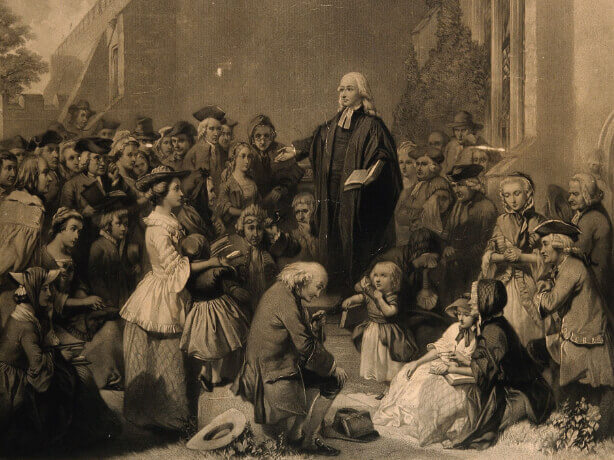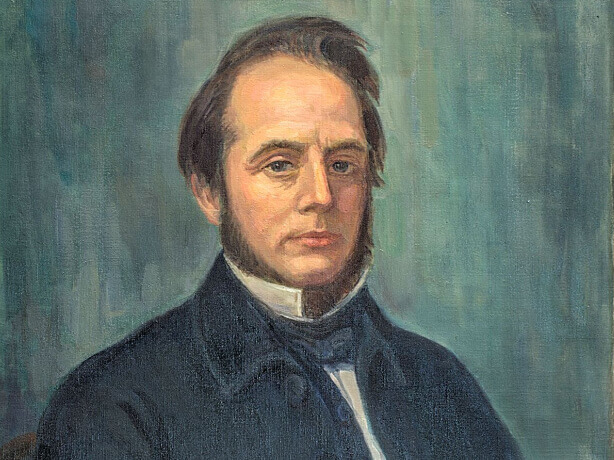A Brief History
Early Methodism
The movement known as Methodism began in England, shortly before the American Revolution. In 1738, John Wesley, an Anglican (Church of England) priest and minister, after experiencing great disappointment in his ministry and mission work to the Georgia Colony, had a life changing experience while worshipping with a group of German expats called the Moravians. He later wrote that while he worshipped with them, he felt his “heart strangely warmed” and wanted to continue to seek after the Spirit of God in earnest throughout his ministry.
Wesley believed that Christian living required two things: an active participation in Christian disciplines like prayer, worship, and community, and a life that was changed from experiencing the living God. The idea that we can experience life altering changes for good when the Spirit of God meets us and moves through us is called holiness, a term many people use to describe the movement that Wesley began hundreds of years ago.
In addition to his “methods” of discipleship, John Wesley also emphasized the importance of love within Christian living, framing Christ’s ministry as a “theology of love.” Taking from Christ’s words about loving God and loving others seriously, he preached that through the Spirit of God working in our lives, the love of God could reign supreme in our hearts, homes, and communities.
While John Wesley never set out to start a new church denomination, the persecution his followers experienced in their local congregations eventually led to the group forming their own denomination—the Methodist Church. As the movement found its way to America, it became the Methodist Episcopal Church, where it flourished in an environment that valued freedom of religion.
When forbidden from preaching from the pulpits of parish churches, Wesley began open-air preaching.
Putting the “Free” in Free Methodists
Benjamin Titus Roberts, known to most as B.T., began the Free Methodist Church in 1860. Throughout history, the church has held so much power. Breaking away from the current conventional church to start a new movement would have been considered radical and crazy. In B.T. Robert’s case, taking a risk to live by his convictions changed the course of the Church. However, before deciding to just up and start a new church, B.T. tried to create change within the Methodist Episcopal Church. He wanted slave owners removed from membership and the opportunity for multiethnic groups to worship together.
Slavery was a lucrative business. Whether people agreed with Roberts’ humanitarian efforts or not, the lure for wealth outweighed theological convictions. Eventually, Roberts was removed from membership of the Methodist Episcopal Church in 1860. Shortly after, he met with several other like minded pastors and a couple hundred laity in a field under an apple tree in Perkins, New York. This group of leaders created the Free Methodist movement. Roberts was not only founder of the Free Methodist Church, but an advocate for the abolishment of slavery, equity for women in ministry, and farmers’ rights.
B.T. Roberts believed that the focus of the church should not be either the sanctifying grace of God or social justice alone, but rather that both would be required to live and love like Jesus. There are many reasons the early movement chose the name Free to be placed before Methodist but the five main reasons, which were active then and are fully embraced now, are the equality of all races, equality of laity with clergy, equality of women with men, equality of poor with wealthy, and vibrant experiential worship. This is the bedrock of the Free Methodist Church.

Continue the Journey
Discover what makes Free Methodists unique through LeadersPath, our innovative learning platform that bridges traditional Wesleyan values with contemporary ministry needs. Whether you're curious about our Free Methodist theology, passionate about social justice, or seeking to deepen your understanding of Free Methodist history and polity, LeadersPath offers interactive courses and expert-led resources designed for modern church leaders.

